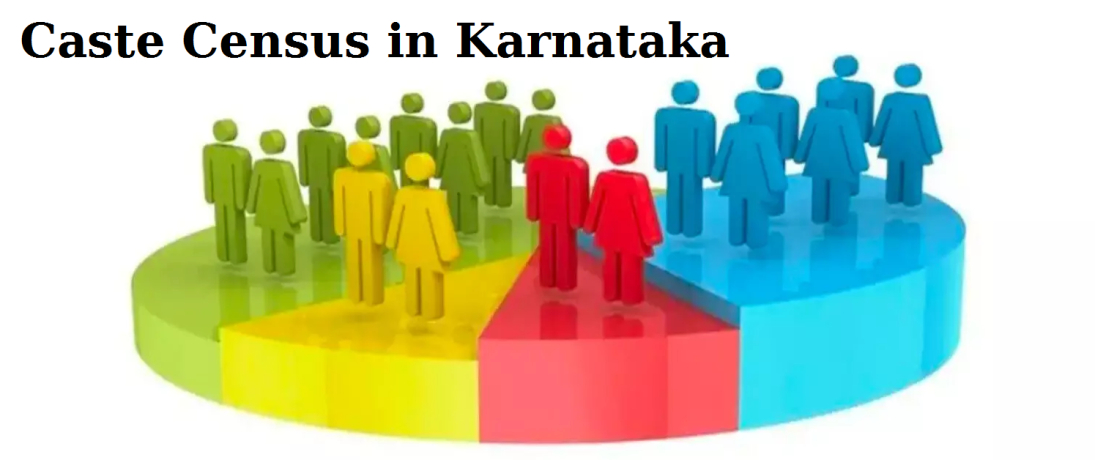As Karnataka continues to debate the release and implications of its existing caste census data, experts and policy analysts have raised significant concerns over the practicality of conducting a fresh caste survey before the upcoming summer. With political tensions mounting and social equity at the heart of the discussion, the demand for a new caste-based headcount is being challenged by logistical, legal, and ethical considerations.
The Push for a New Survey
Over the past few months, calls for a fresh caste census in Karnataka have grown louder. Various community leaders and political stakeholders have argued that the previous survey, conducted under the previous administration, was flawed or outdated. Many feel it did not adequately capture the social realities of present-day Karnataka, especially the changing dynamics within Other Backward Classes (OBCs) and marginalized groups.
The demands gained fresh momentum as debates around reservation policies and social justice resurfaced. Some communities questioned the accuracy of figures released from the earlier survey—especially in light of the discrepancies between perceived population numbers and actual entitlements in education, jobs, and welfare schemes.
Experts Raise Red Flags
Despite the political and social pressure, experts in public administration, data science, and social policy have unanimously agreed on one thing: conducting a fresh caste census before the next summer is not practical.
According to these experts, a comprehensive caste enumeration exercise involves not just statistical rigor, but also socio-political sensitivity, time, and large-scale mobilization. The process includes detailed planning, training of enumerators, grassroots verification, community outreach, and backend data compilation—each of which is a mammoth task in a state with a population exceeding 7 crore.
Analysts point out that even the previous caste census, which was conducted nearly a decade ago, took years to complete and validate, despite being backed by a full-fledged administrative infrastructure. Attempting a new census in under a year, they argue, would likely result in inaccuracies and further contention.
The Challenges of Execution
A fresh caste census would require the deployment of thousands of field-level officials across Karnataka’s 31 districts. This manpower demand would conflict with the state’s existing administrative workload, especially with the Lok Sabha elections on the horizon, followed by Panchayat-level polls in many regions.
Moreover, implementing such a sensitive survey just before or during the summer months is logistically unfeasible. High temperatures in several districts, especially in North Karnataka, can hamper fieldwork and reduce the efficiency and accuracy of data collection. In addition, schools—often used as centers for census activities—remain shut during the summer, removing a key infrastructural pillar from the process.
Experts also warn of the potential for social unrest. In a politically charged environment, premature attempts to collect caste data could spark allegations of manipulation, favoritism, or underreporting. These risks could threaten the credibility of the new census and exacerbate caste-based tensions rather than resolve them.
Political Backdrop and Controversies
The debate over caste census in Karnataka is deeply entangled with political maneuvering. The state government has faced mounting pressure from various caste-based organizations demanding increased reservations. Meanwhile, opposition parties have accused the ruling government of using caste data as a political tool, either to appease dominant communities or undermine rivals.
The earlier caste census, conducted under a coalition government, has not been officially released to the public. This lack of transparency has fueled suspicions and speculation, with some communities fearing they may be underrepresented in state policies.
In this volatile scenario, initiating a new caste census without addressing the fate of the existing one may deepen public distrust in government initiatives.
Legal and Constitutional Hurdles
Legal scholars have pointed out that the state may also face legal complications if it proceeds hastily. A fresh caste census would need to be carefully aligned with national census norms, constitutional principles of equality, and guidelines from the judiciary.
There are concerns that an improperly conducted caste enumeration could be challenged in court, thereby delaying its implementation and rendering the entire exercise futile.
Moreover, several experts believe the state must seek coordination with the central government and the Registrar General of India if it wishes to carry out an exercise of this magnitude. Without central validation, any caste data collected may lack official recognition and be of limited use in policymaking.
What Lies Ahead?
Given these realities, most policy experts are advising the government to focus on releasing the findings of the previous caste census before attempting a new one. A proper audit, review, and transparent dissemination of that data could help address the current impasse while giving the state time to prepare for a more comprehensive exercise, if deemed necessary, after the 2025 summer.
Many scholars are also calling for a multi-stakeholder committee—comprising demographers, social scientists, statisticians, and legal experts—to study the feasibility of future caste surveys in Karnataka and ensure that such data drives genuine social progress rather than political fragmentation.
The road ahead is clearly complex. While the need for accurate, up-to-date caste data is undeniable in a society where access to resources and rights remains unequal, the path to obtaining it must be carefully paved. Rushing into a fresh survey, as many experts now warn, may end up doing more harm than good.
Sponsored
FACTS Transcripts
Apply for a University document anywhere
https://www.factstranscript.com
Quick Transcripts for popular Universities, check your University name now and get started. We help you to get your transcript application online which is accepted for use of IRCC.
No DD, NO Paperwork. 100% Authentic, Reliable.
FACTS Transcripts Charges · Reviews · Assam Universities · Home · Know your University










